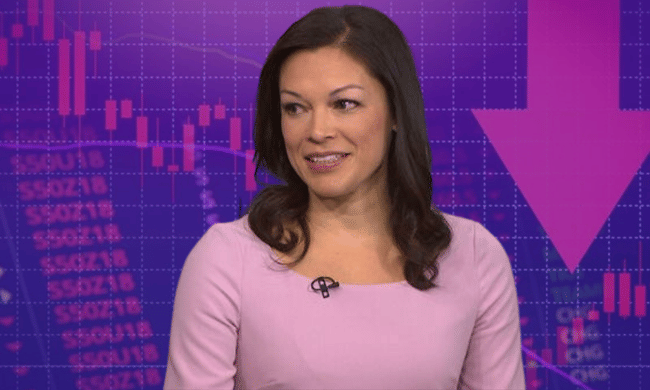Liz Young: "I can't imagine a world in which we raise the Fed Funds rate 475 basis points and then merrily trot off into a new bull market."

The Federal Reserve's policy tightening campaign has exposed significant risks in the banking system and stocks could sink later this year if a recession hits, according to Liz Young.
Over the past year, the Fed has raised interest rates by 1,700%, most recently raising rates by 25 basis points in March following the collapse of Silicon Valley Bank, Liz Young's reaction to this information was as follows 👇
"I can't imagine a world where we raise the Fed Funds rate 475 basis points and then merrily trot off into a new bull market," she said in an interview.
Even before the banking chaos hit, Young said she expected some form of stress to emerge in the economy, given the amount of liquidity the Fed has depleted and the rise in borrowing costs. The subsequent bank failures were a symptom of the Fed's policy decisions.
"I think we're in a situation right now where we've plugged the hole that was discovered sufficiently for the short term, in the sense that depositors were covered," Young said, adding that the contagion appears to have been contained. "I also find it hard to imagine a world where bank failures and corporate liquidity problems are good news."
The recession, however, is crushing stocks
Tighter economic conditions this year may result in lower stock valuation multiples, falling profits and ultimately an economic downturn.
Typically, if a recession is confirmed, the market will fall more than 30%. Last year, the S&P 500 index fell roughly 25% from the peak to the trough, signaling a bear market but not quite a recession, Liz Young explained.
Young pointed out that during the Great Financial Crisis 15 years ago, stocks plunged 58% from peak to trough. However, she is not as pessimistic for the current recession, but nevertheless anticipates a drop of around 25%.
"I don't think this is a repeat of the financial crisis," Young said. "But I would expect it to get above 25% (down from the high of this cycle reached in January)."
Fragile confidence
Before the wave of bank failures, a strong job market and cooling inflation boosted Americans' confidence in the economy, Young said. But March's setbacks have shaken that optimism.
"I think confidence is something that is a risk and the stock market is underestimating it right now," she said. "Frankly, consumer confidence is something that can turn on a dime and consumers can change the way they spend money, whereas then there's a mismatch between what consumers can change and how quickly companies can respond."
For example, companies are stocking their shelves more with the items they sell to consumers, and that essentially predicts the economic outlook for up to a year ahead.
However, consumers could change their minds with buying habits on a daily or weekly basis - meaning corporations could be caught with bad inventory or too much inventory.
"That's one of the bigger risks that would show up in corporate profits," Young said. "And I think the corporate earnings estimates are still too high for 2023."
Note that this is not financial advice.